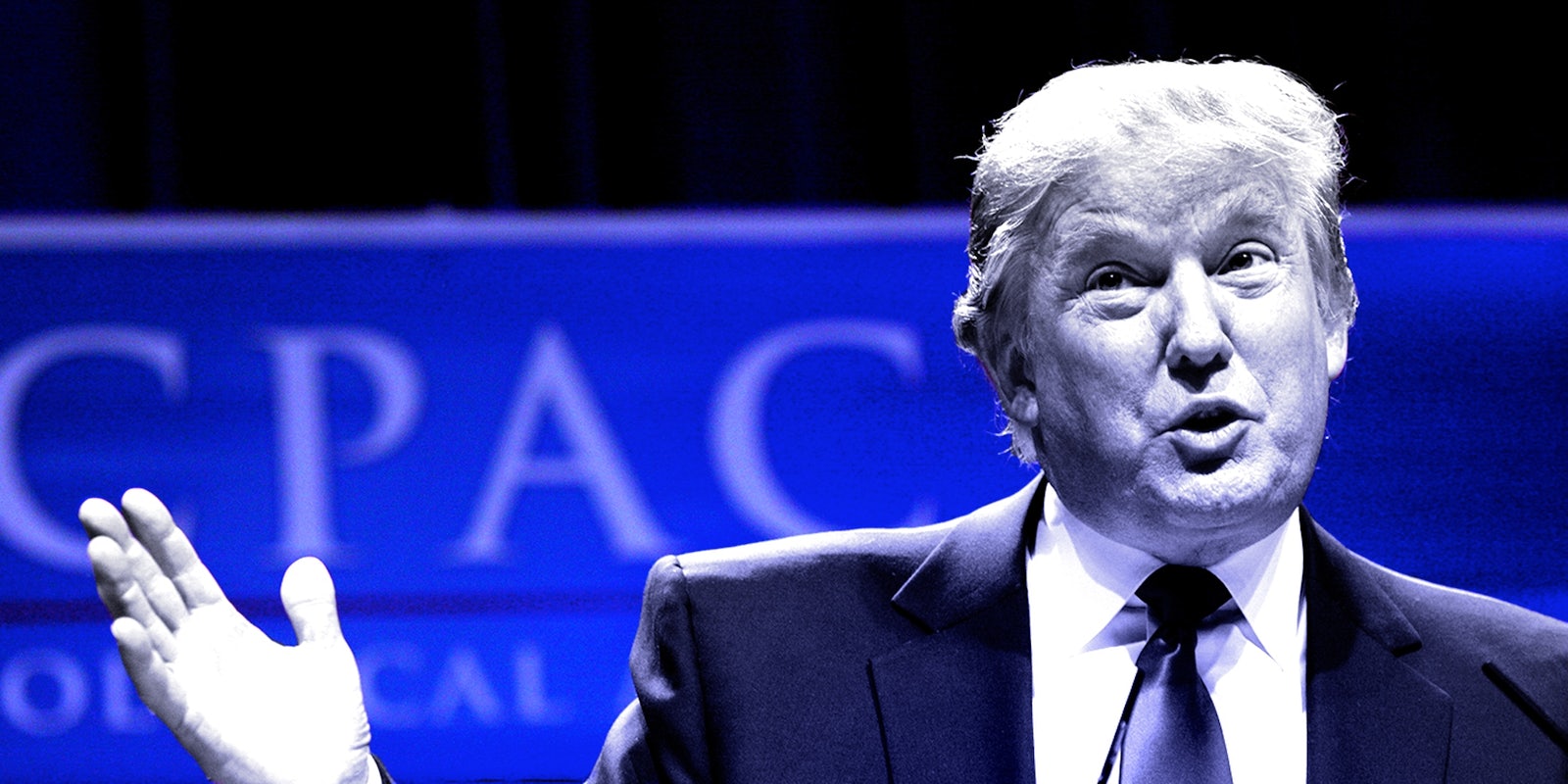This election is supposed to be different.
Donald Trump has stormed to clear frontrunner status in the Republican presidential primaries over the last month. No one quite like Trump has ever been in this position, 15 points ahead of his closest competitor, the neurosurgeon Ben Carson. The two people leading the 2016 GOP primary have never served in any political office.
What’s more, many people who joined the universal dismissal of Trump as a joke are now asking how he could possibly lose.
“I have yet to hear a pundit lay out a theory of how [Donald Trump] fails to win the nomination other than people come to their senses,” Dan Pfeiffer, a former adviser to President Barack Obama, tweeted on Monday.
But despite Trump’s unique political character, this GOP primary has many parallels to the party’s 2008 and 2012 contests, in which Barack Obama and Hillary Clinton served as the Republicans’ chief antagonists and, eventually, boogeymen.
At this point in the 2008 campaign, former New York City mayor Rudy Giuliani was winning. Giuliani had strong name recognition and large early support. In August 2007, he won every single major poll of GOP primary voters, garnering numbers very similar to Trump’s current standing.
On the other side of the aisle, Hillary Clinton, then a New York senator, led the Democratic field by 20 points, which is not all that dissimilar from her current lead over Bernie Sanders.
In the 2012 campaign, the leading candidate in late August 2011 was Rick Perry. The Texas governor won all polls conducted from August to September 2011, albeit by a significantly smaller margin—single digits—than Giuliani and Trump’s leads.
Perhaps this presidential election cycle isn’t quite as unique as some pundits are suggesting.
In the 2004 campaign, the leading Democratic candidates were Vermont Gov. Howard Dean and Rep. Dick Gephardt (D-Mo.). The nomination eventually went to Sen. John Kerry (D-Mass).
In fact, no one who was winning at this point in the primary campaign has gone on to capture either party’s nomination since Al Gore, who carried obvious structural advantages as a sitting vice president in 2000. That same year, George W. Bush, then a sitting Texas governor, did the same thing on the other side of the aisle.
The fact that Gore and Bush were powerful and popular incumbent politicians played a huge role in their ability to maintain their lead for such a long time. Trump, like Giuliani and Perry before him, lacks that advantage.
Then again, there are dynamics that make Trump a novel phenomenon.
Perry lost the lead after several eye-popping public gaffes, and Giuliani stumbled when corruption and criminal behavior began to taint him and his supporters. But whenever Trump has said something that the media deemed outrageous or unsurvivable, he only grew stronger in the polls.
When Trump’s fellow Republicans accused the hard-driving businessman of corruption during the first debate, he successfully shifted the blame elsewhere, and his support rose. His surprising resilience continues to confuse veteran political observers.
But what really fuels the turbulent nature of early primaries is the fact that the majority of Americans are simply not yet paying any attention to the race. When only the hardest of the hard-core partisans are engaged, political actors outside of the mainstream can easily grab the spotlight. They face far less sophisticated challengers than they will later in the campaign.
In the past two presidential elections, relatively moderate Republican candidates gained support as the public’s interest in the contests grew. Sen. John McCain (R-Ariz.) and former Massachusetts Gov. Mitt Romney won the GOP nomination despite facing early challenges from candidates who drew enthusiastic support from the right wing of the party. That support eventually fizzled.
There is no guarantee that 2016 will play out like 2008 and 2012, but the many similarities between those elections and the current one should not be ignored. No candidate should be viewed as an inevitable winner until general interest in the race picks up closer to the start of actual voting.
Photo via Gage Skidmore/Flickr (CC BY 2.0) | Remix by Max Fleishman


